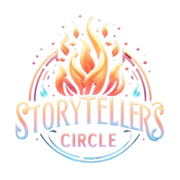I wouldn't mind trying to get into another campaign, though obviously we'd all need to sort out times.
I'd give my current schedule... But that's up to possibly getting shifted around a lot tomorrow, so I'll come back after that and update you.
And like Morph I also try to give my own summaries of the different D&D editions that I have experience with.
D&D 3.5/Pathfinder
Pairing these together cause they're easier to explain when compared. Both have quite a lot to keep track of, but for different reasons. Pathfinder gives you a ton of options to play varied and interesting characters, while 3.5 doesn't work that hard on balance, leaving itself really open to the meta-game of making the most broken character possible, or accidently making an unusable character cause you picked the wrong class. Both follow the same general rules and mechanics however while in play, but Pathfinder took a few of the issues with 3.5 to improve play, mainly grouping things together that didn't need to be split, and letting players be more adaptable.
4th Edition
Affectionately known as "MMO the tabletop". If you're more of a dungeon crawler type of player then 4th edition is pretty solid, giving you a lot of classes to choose from, and a ton of diverse and interesting abilities to pick from within those classes. So no matter what you play as you'll have fun and engaging combat encounters. However... It does this at the cost of tanking pretty much anything that could aid in roleplaying, so when you're not running around killing monsters and raiding dungeons you're left with a ton of improv.
5th Edition
This is really just 3.5 again, but heavily simplified. It's much quicker and easier to pick up, and you should spend next to no time having to flip through a rule book in the middle of play. But as a trade off it also cuts off almost any ability to adapt and respond, both in combat and in RP. And there really isn't much variance between the classes, even with Archetypes. So once you've seen one rogue you've seen them all.
=================
So in short/summary.
3.5 = Best for your hardcore number crunchers and optimises. High risk, high reward, can be easily twisted and broken.
Pathfinder = Probably your best all rounder. It has the best mechanics set up to sort RP and Creativity, and is more friendly than 3.5 to a more casual group.
4th = If you just care about fighting monsters (or only care to have mechanic for fighting monsters) this is the best edition to go with. Combat will always be diverse and interesting, but be prepared to handle anything that isn't combat related.
5th = Best if you don't really care about any sort of mechanics, and just want an excuse to get people to show up at the table. Despite this systems popularity, I would highly advise AGAINST using this edition.
